
Docskool’s – Clinik.Kathmandu is one of limited industry bodies recommending promising young filmmakers into the Rotterdam Labs of Cinemart – IFFR. Closed for open application, Rotterdam Labs relies on partners to streamline a linkage with home talents who aspire to tell heart bound yet global stories.
Not much spoken of in the cluster of ‘talent programs’ offered by festivals, Rotterdam Labs makes huge impacts in the way a film behaves within the IFFR Planet. As the pioneer festival promoting World cinema, the International Film Festival Rotterdam was the first to start a professional segment for filmmakers beyond Europe primarily the Hubert Bals Fund(HBF). The impact has been heavy with more projects making the global development circuit through HBF and the CineMart film market often starting at Rotterdam Labs.
Here’s Inke Van Loocke – Coordinator of CineMart answer just the basics of the Rotterdam Lab principle
Tell us more on Rotterdam Lab
We organise a 5- day training workshop and networking opportunity for emerging producers, taking place during CineMart. Set up in 2001, Rotterdam Lab is organised in close cooperation with various international partners involved with the training of talented producers as well as funding bodies and film agencies. CineMart is a natural platform for this and is dedicated to supporting talented producers. Important to mention is, is that Rotterdam Lab in not project driven, but focused on developing skills, company management and building a strong professional and international network.
Please tell us about the value of exchange with producers from around the world converging at IFFR?
It’s invaluable really. Between the moment they first meet each other during our speed dating session and the moment we close off the Rotterdam Programme by looking ahead into the future, a lot of incredible things are happening. First of all, you have these 60 talented, emerging producers from usually around 26 countries in one room, whose careers are more – or – less in the same stage, and they’ve all went through a careful selection process by our partners. These are all producers who have a very international and open approach to working, and keen to discover new ways of collaboration, expanding their network, and learning new skills. Every year, new productions are starting which are rooted in Rotterdam Lab, and every year, we welcome alumni back with a project at CineMart, a film in the festival or even in our Hivos Tiger Competition. We strongly believe in making sure all this talent will always find a place at our festival and we try to support them as much as possible in any future steps they want to take.
Does 2018 IFFR have a particular focus? kindly elaborate.
Building on last years’ campaign ‘Planet IFFR’ we now invite everyone to discover the ‘Humans of planet IFFR’. These humans are our filmmakers, audience, Rotterdam Lab participants, my amazing colleagues, our warm and professional industry guests, our CineMart project teams and much much more. We have so many things on offer this year: a strong selection of films, projects and installations, masterclasses, a two-day distribution conference, talks and urgent discussions. But of course also plenty of networking events and fun parties where all the Humans of Planet IFFR come together.
We also spoke to Docskool’s Kshitiz Adhiraj to hear what ‘we’ think about the partnership and how its meant to support filmmakers. Here’s what he had to say.
How does Docskool collaborate with Rotterdam Labs?
Docskool has been empowered to have CineMart supporting us since our very first year of Clinik. We nominate filmmakers with exponential potential both in making their own films and in supporting the local film scene to attend the Rotterdam Labs, this should act as an industry induction for them to find partnership and collaborations with IFFR and other programs/ people in general. Their way to get in is through the Clinik.Kathmandu labs which is when we know about people.
Not many people seem to know of IFFR in Nepal, how is it of help to filmmakers, can you elaborate?
I think thats not true. Many of the practising filmmakers looking for international collaborations know of IFFR if not directly may be through the Hubert Bals Fund, which has had a key role in supporting many Nepali and regional projects. Of recent Deepak Rauniyar’s new film Raja received a funding from HBF and his earlier project Seto Surya (White Sun) was part of the Boost platform of CineMart too, it provided a lot of push for the film. Regionally Prasanna Jayakody has appeared frequently at IFFR, his latest 23 won the NETPAC award there. From India Chauthi Koot that showed at the Cannes Film Festival’s Un Certain Regard segment has a development story with IFFR. Its producer from NFDC was at the Rotterdam Labs when Gurvinder Singh(director) was working for Anhe Ghore Da Daan and I have a feeling the film was at Cinemart though I am not sure about that. But that’s how the industry build up works, its a festival ecosystem of support if you look at it that way.
Docskool at IFFR
Docskool is being represented by Jolein Laarman at the 2018 IFFR. To get in touch with her send an email to [email protected]. She is available for meetings and talks between 25 – 31st of January in Rotterdam.
Jolein Laarman is a writer based in Amsterdam. She advises at the Clinik Writing Lab since 2017. Currently she is on a mission to develop a new Women’s Lab for South Asian women filmmakers within Clinik.
Rotterdam Lab
Ram Ilango from Sri Lanka will be presenting himself on behalf of Clinik.Kathmandu at the Rotterdam Labs this season. His project, ‘Scent of a dead body’ was at the 2017 Writing Program and has since undergone substantial development. This will be Ilango Ram’s second international presence following the NFDC Film Bazaar in November.
Ilango Ram is a producer, cinematographer and director based in Colombo. He has worked with cinema and television content for over a decade. He and his partner Hiranya Perera, are all set to start producing films in Sri Lanka. Their new company is yet to be named.
Our other strong ways of discovering new talent and/or supporting talent at IFFR are:
BoostNL: https://iffr.com/en/blog/boostnl-at-iffr-2018
Bright Future Selection: https://iffr.com/en/bright-future-2018
Young Critics Programme: https://iffr.com/en/iffr-industry/press/young-film-critics
A feminist and a film- maker others like to call controversial in Bangladesh, Rubaiyat Hossain talks to Docskool about women as film- makers, her new project and a glance at cinema in her country. Her new project, “Made in Bangladesh” manifests the realities of current Bangladesh – ‘about a woman who works in a factory, and has to balance her work and home in a patriarchal society.’
Rubaiyat is hopeful about the progression of cinema in Bangladesh. ‘Of recent people get to watch independent cinema being screened every 1-2 months in the theatres with good quality’ she says. The contents are derived from variety of subjects; some are theatre-oriented; some are born from art houses, and so on. The increasing presence of Bangladesh cinema in film festivals is very exciting with more avenues of collaboration opening up. In 2017 she was at the Locarno Open Doors which has a focus on South Asia between 2016-2018. ‘Her presence helped her build a new understanding on the evolution of global cinema and co-production in these contexts’.

But she also feels that there are some key things that cannot be denied in the industry; ‘there is a lack of film schools, and most of the filmmakers are self-taught. The industry is gendered, where women filmmakers who are very less in numbers faces unequal wages and further marginalised.’ In her perception, when you are trying to tell a story of a woman, you need to understand them, and involve them in your own projects- a deliberate decision to engage and work with women crew in her recent film, Under Construction.
Her experiences of working around representation of women in cinema sheds light that even if a cinema has woman protagonist, it is embedded with stereotypes; some for the sake of establishing a commercial value while some for other reasons. Rubaiyat found the works of works of Satyajit Ray such as Ghori Baire,Mahanagar and Charulota to have respectfully portrayed women.

‘The ability to portray a woman as a main character in your films is an art on its own’, but she takes certain portrayals of women with a grain of salt because she does not find them as accurate as they should have been, at least from a feminist point of view.
Funding, she says is one of the key obstacle of working in the industry. The simple logic is “no box office, no money”. ‘If you even get a grant, the money lasts for only so much of time, and that’ very rare as well. Most of the filmmakers are forced to take a part time job to sustain themselves, and without a good cinema school, all end up being self-taught’.
She further added that Bangladesh until recently was a little disconnected from international cinema event, and there is a constant need to establish connections with other filmmakers. Her film “Made in Bangladesh” was possible after her experience at the Open Doors, with funds with various countries and the European Union Fund. She suggests creating a strengthening bond between South Asian Film makers to further understand the existing work, and establish possible collaboration.
All photo’s from Rubaiyat Hossein’s personal archive.
]]>While still struck by the speed at which Abhaya and his team pulled off this lovely story of greed, love and contemporariness we caught up with Abhaya and spoke to him about his film and of his plans around it.
Abhaya Simha’s 2008 film Gubbachigalu won the National Awards in India in the Children’s category. Knowing him personally from the Writing Program, his commitment to cinema and his urgency for personalness in his stories is anything to be taken lightly.
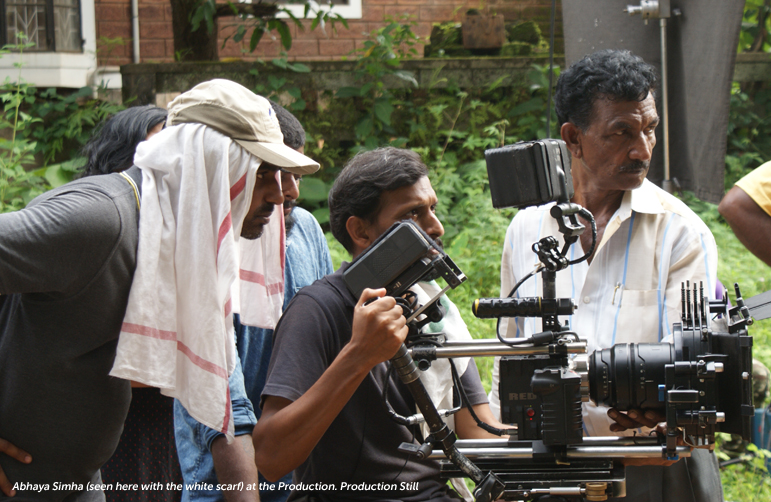
Tell us in brief about “Paddayi”.
This story of ambition, greed in Shakepeare’s Macbeth is relevant, it attains different meanings to each generation.
Today India is going through transitional times where the cultural, moral change is highly visible. This is changing the dynamics of community living too. Our film Paddayi brings in a sharp focus on this. In a culture which is deeply yet subconsciously rooted in its philosophical existence, what happens when carnal desires or ambitions creep in?
The film is made in Tulu language. It is an indigenous language which the fishing community (Mogaveera’s) in costal Karnataka speak. The film is based on this small fishing community. This community depends on their communal living for their survival. I have grown up around this community in my formative years. With all the dramatic cultural, political changes happening around, this community of Mogaveera’s has largely remained untouched. The film has attempted to capture the essence of this community and place the story of ‘Macbeth’.
Adaptation is supposed to be tricky. You picked up Macbeth, tell us about this journey you took.
This is my fourth film. But for the first time, I was attempting an adaptation from literature. While attempting a classic like Macbeth, it is always challenging because many film masters have already attempted many variations of this text and audience come to the screen with expectation and certain understanding of the text. Also adaptation by itself has many challenges like finding audio – visual idioms through which the essence of story could be narrated well. There are many powerful sequences in the play ‘Macbeth’ which needed to be translated to screen with a different grammar.
We also had to work on finding cultural localisation of the text. Spirits, belief system around it, scales of ambition in different times and culture and so many more things had to be accounted for in the process. It was challenging and exciting at the same time.
Is there a film festival strategy at place? How is this affecting your film so far.
We were blessed to be a part of Clinik Writer lab in 2017. It not only gave us insights in making this film an international project but also gave us insights into the film festival market and support system for such independent films. Since the film is made in Tulu, the home market is considerably small. At the same time, since the content is international in its appeal and spirit, we see a huge potential for the film in International Film Festivals and distribution. We are hoping a larger reach through the Film Festival strategy.
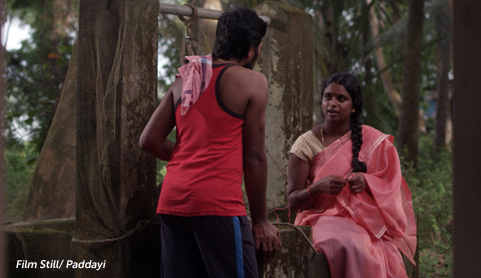
What professional attachments are you further looking for in the film?
We have now completed the production of the film and are looking at International Market opportunities. Content of the film is universal. The cultural localisation of the content makes this film completely modern and exotic in its appeal. So we hope to reach out to the world cinema audience through international collaborations, distributors, film festival screenings, and home video distribution among others.
How do you think this movie will stand out in the Karnataka Film Industry? (Equally curious to know more about Karnataka film scene.)
Though the film is made in Karnataka, film uses an indigenous language spoken by relatively a small community in Karnataka. Though the reach of the film would be limited due to the language used, we had to make this decision to be honest to the community and its cultural ethos we were working with.
Compared to Kannada or any other Indian language film, Tulu films are very few in numbers pacificdreamscapes.com. So content dealt in this community are highly limited too. Paddayi is the first film to attempt a world literature in films in this language.
There are only 10 screens available in the Tulu speaking areas. They too are opens for films of other languages like Kannada, Malyalam, Hindi and English. So Tulu film often finds itself competing with other mighty films for its existence.
So making films in Tulu has huge challenges in terms of production, distribution or screenings. So we hope that the film is very unique not only in Tulu but also in Karnataka and Indian film industry.
Your first film had won a National Award. Are you expecting your films to be at the National Awards this time as well?
My first film Gubbachigalu (2008) won the National Award for the best Children’s film that year. It was a great honour to a fresh graduate from the film school. It is always great joy to receive that honour and there is always an expectation and hope for it.
For attachment enquiries into the project for festivals, sales or others write to Docskool at [email protected] on Facebook find Abhaya at https://www.facebook.com/profile.php?id=610650296
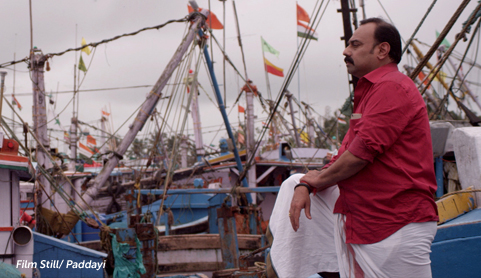
Unlike previous years, following 2018 all filmmakers participating in the Writing Lab have been given a unique opportunity to continue development in attachment with Clinik for a year under the Fiction Development Programme. The programme will provide further writing support, strategy development assistance painterly.ie, market incubation support and host creative clarity exercises as the project builds further.
All projects will reappear in February 2019 for the Project Build Up lab where they will work on their execution aspects before entering market incubation.
The Writing Lab advisors were Jolein Laarman, Giovanni Robbiano and Kshitiz Adhiraj.
Filmmakers selected for the 2018 Clinik Fiction Development Programme are:
Anila S.k (Sri Lanka) Women Fellow
Nang Tanvi (Arunachal Pradesh – India) Women Fellow
Pasang Dawa Sherpa (Nepal)
Sachin Ghimire (Nepal)
Tazeen Bari (Pakistan) Women Fellow
Tribeny Rai (Sikkim – India)
Unni Vijayan (India)
ends with a personal short project with professional crew and a certificate.
Eligibility: Anyone above 16 years
Duration: 8 weeks
When: August and September
Location: Docskool Thapathali
& Ehwa Arts Collaboratory, Dulikhel
To apply: Send email with Letter of Interest and a CV at [email protected]
or call before 20 July
977 01 4251335 or 9803269849
A maximum of 5 fellows will be selected by the Clinik.Kathmandu program every season. The process has been integrated into the Project Support Focus of Clinik.Kathmandu and uses the Writing Lab, Extended Advisory and Project Build Up lab as required components of the fellowship to be complete. At the end of the year, fellows should have a clearly developed project including a finalised script, a creative template involving a demoreel/ pre shot scene, and maturity in the artist to understand the personal and social value of the story and posess the ability to present the project at any professional platform.
To apply, an applicant must be from one of the listed countries :
Bangladesh, Bhutan, India (North East), Sri Lanka, Pakistan, Nepal
Application should be made to the Writing Lab 2018. The fellowship starts at a ‘Women Storytelling workshop’ held right ahead of the Writing Lab in Kathmandu.
All application requirements are the same as the Writing Lab. Here however a Letter of Intention on expectations regarding the Fellowship will be seen with close regard.
What is Provided
A filmmaker is obliged to be part of all the programs (Writing Lab, Distant Advisory and Project Build Up Lab) if accepted as a fellow.
The Fellowship will provide full cost waivers to all the workshops and a certain percentage of travel stipend to come for the workshop in Nepal. The participant will cover costs for their fooding during all workshops, certain costs of their travel not covered by the stipend and production charges applicable.
Last date of application is 20 April 2018
any querries to be addressed to docskooltalks(at) gmail.com
Following her time at the Busan Film Festival’s Asian Film School, Sumudu has keenly been developing a few ‘secret’ projects. Her focus is on building a body of work that represent her and the world she calls home. Equally intrigued by the value of being an Asian telling stories today, Sumudu talks about herself, her experiences at Busan and how more filmmakers should take the next step.
Sumudu graduated from the Busan Film Festival’s Asian Film School in 2017. Before that she was an alumni of the Srilankan Digital Film Academy, the island nations only school with a film related program. When not producing, Sumudu is making new friends, busy finding new stories that inspire her and is very very active.
Here’s what she had to say.
How do you see the the Sri Lankan film industry today?
Sri Lankan cinema industry had a golden era and which was challenged by the 30 years of war. Veteran film directors like Vimukthi Jayasundara, Ashoka Handagama, Prasanna Vithanage lifted Sri Lankan cinema into a different stage and from then onwards Sri Lanka has an art house film culture which runs in the international film festival pipeline.
After that generation, we have a newborn cult who is interested in filmmaking especially experimental films. We have talents, stories, creative people.
Our government and Film Corporation need to do more to the film industry soon and I believe there will be a future soon.
What do you think are the roles of young producers to make cinema more accessible for young film makers ?
As Asians we have more stories to be told, more stories to share with the world cinema. I believe as young producers we have more power in this medium now. I think it is the core duty of upcoming producers – finding the most influential, important storyline. The moment you feel confident about your story is the moment you can see directly to the audiences eye. I believe in that.
In Asia, we seem to lack producers who practice in industry standards. I suggest all young filmmakers and upcoming Directors and creative people stand on the ground, trust your gut feelings and, write every day and stick to it. A way to move forward is to try applying to more festivals. The more you stay active the more you get.
Are there enough infrastructures available for young producers to explore their skills?
In European countries, I believe there is but for Asians, we need more opportunities.
There are special training programmes offered by international film festivals and anyone can apply to these with their prior work. If you have a good profile it will be an additional qualification. Busan International Film Festival, Busan Asian Film School, Locarno Open Doors (2016-2018) have guided programmes, Berlinale Talents are few other names I can suggest if anyone would like to follow up a structured session to learn more about producing.
But to explore your skills you need to roam and you need to be yourself and understand people and how the industry works. Talk to professionals who are not from the digital era. They know how hard it was to plan everything on paper and how hard it was to keep the strings together. We are born in a generation which makes our lives easier and which makes us lazy. There are so many places out there to power up your skills and creativity.
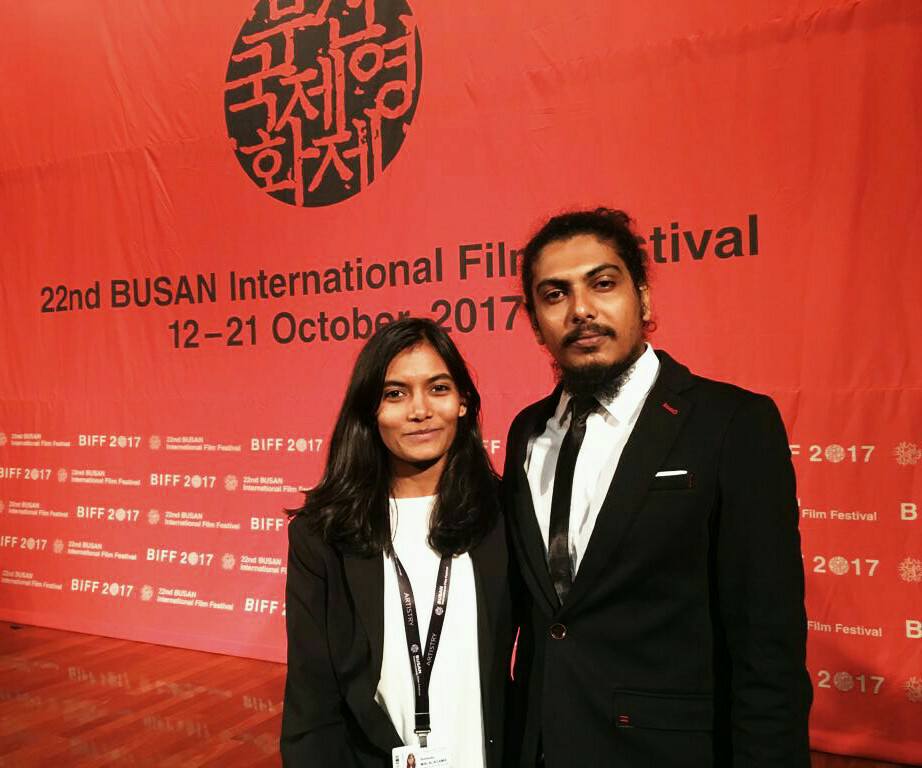
Tell us about your AFI experience.
Busan Asian Film School was initiated in 2016 By Busan International Film Festival Deputy Director and Programmer Late Mr. Jiseok Kim and Director of Busan Film Commission and President of AFCNet Mr. ChoiYoon to start a network among Asian producers. The school focuses on producing and international film business and it has the best instructors and mentors who guided us on all aspects of the film industry, including pitching projects, production, and leading into investment. Especially I need to mention the lectures HAN Sunhee, KIM Young, Darcy Paquet, Joyce CHO and their support and guidance throughout the sessions.
I learn film producing and International Film Business with 20 film producers from 17 Asian countries and that is a wonderful experience and I am really grateful I got selected for it. Further my project got selected to Asian Film Market in Busan International Film Festival 2017 and it was my first public pitching experience, which was a real challenge.
The experience and the cultural sharing among 17 countries were so much interesting and that was a memory to cherish.
Apart from these people I met number of young Asian filmmakers during the Busan International Film Festival 2017 and I believe there is a long way to go with these amazing filmmakers. Together as Asians, we have to go to the world cinema and that’s what we planned.
Tell us about your new plans and projects in specific that you would want us to know about.
The project I developed at the Asian Film School is my main priority at this moment. I received a development grant during the AFIS pitch – Busan Film Festival 2017 and these days I am using my time and effort to get the maximum of it. At the same time, I am working with few Sri Lankan and international filmmakers these days. We simply read our scripts as a group and study each other’s works. Because we believe the much we work together with the longer we can go.
We have been told you are working with a ‘lot of new talents’ in Sri Lanka at the moment, how is this going – please tell us more about the new vibe in Colombo.
Sri Lanka has new blood and I am sharing the knowledge I received from the Asian Film School with them and at the same time, I am learning a lot from them. Simple there will be a total different cult for film very soon.
Festivals often support alumni filmmakers, Can you please add more on how this works with Busan.
I believe the talent and the effort of the filmmaker and the passion of the filmmaker and how honest are you to the story is the key point to the festivals. Being from the alumni is an additional qualification I must say. But the newness of your concept, the creativity of the story, keeping the originality of your country or the region and a serene and the pureness of the filmmaker will lead the filmmaker and the producers and the film to the audience.
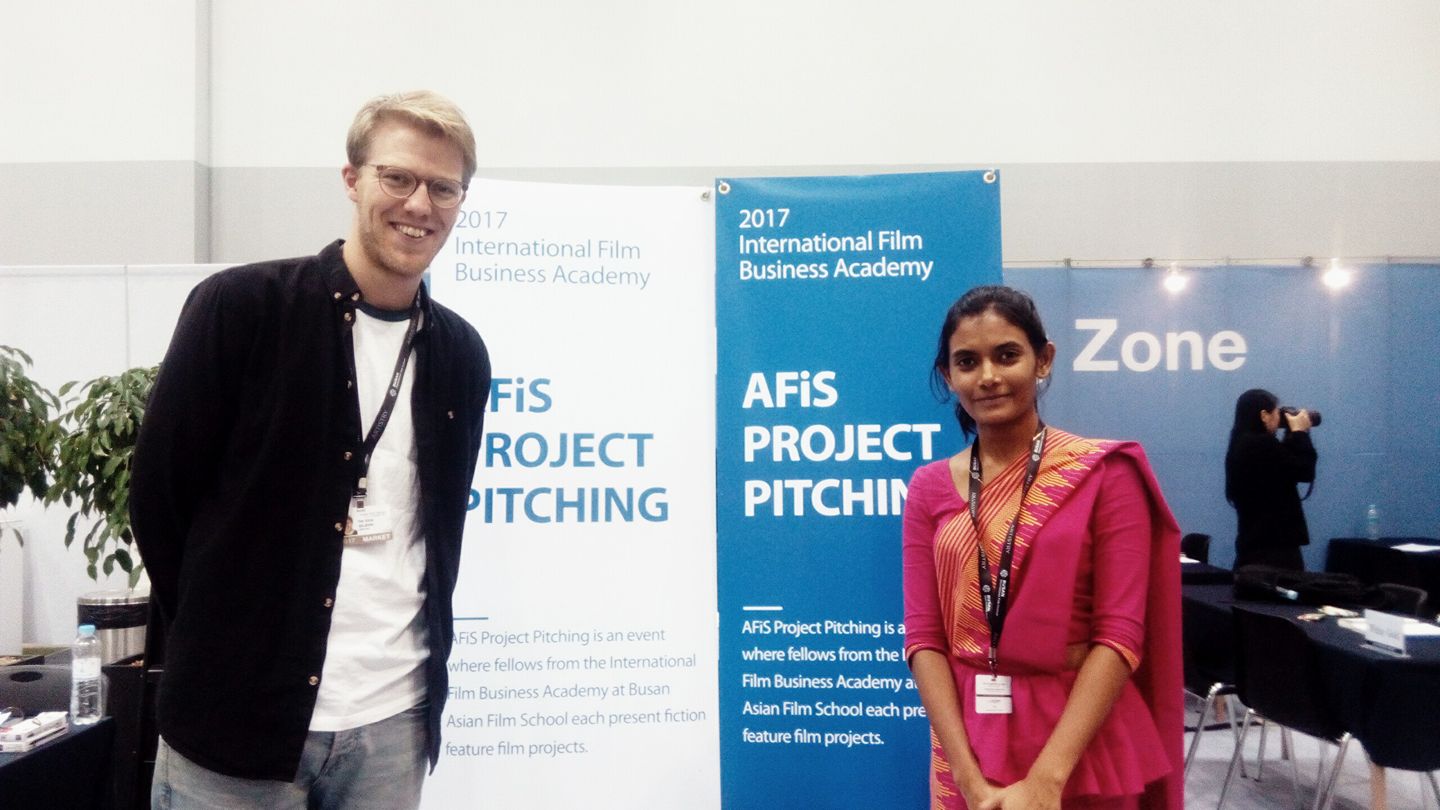
All Photos provided by Sumudu Malalagama.
Text by Anushruti Adhikari.